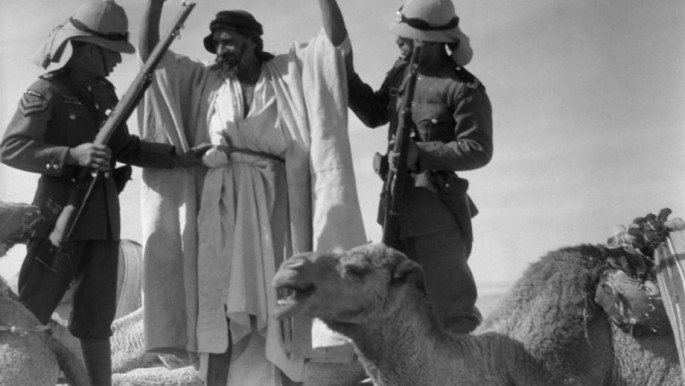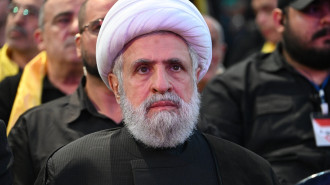Iran's international drug dealing risks destabilising Iraq
From corruption and unemployment to ethnic conflict and religious intolerance, Iraq and its benefactors in the international community have found no shortage of problems to address in the country.
As they confront this laundry list of obstacles, however, the extent of the illegal drug trade in Iraq - and Iran's role in it - has escaped their notice.
Iran and its Shia proxies have turned Iraq into the latest franchise of a continent-spanning drug cartel, and the Iraqi government lacks the means to stop them.
In April 2017, the Saudi television channel al-Arabiya reported that Hizballah, the Islamic Revolutionary Guard Corps (IRGC), and Iranian-linked elements of the Popular Mobilisation Forces (PMF), an umbrella organisation of Shia Iraqi militias, were smuggling drugs from Afghanistan through Iran, Iraq and Turkey to Europe.
The report claimed that Italian law enforcement agencies had dismantled a nine-member Iraqi PMF cell working as part of a wider operation headed by IRGC general Gholamreza Baghbani.
"Iran is using its militias in Iraq and other countries to traffic drugs," said Mike Vigil, a former Chief of International Operations at the US Drug Enforcement Administration who visited the country several times in the 2000s.
"These militias are the catalyst for Iran's regional and international drug distribution. Iran for a number of years has been responsible for funneling drugs into Iraq."
Read more: Challenges and hopes: The women standing for Iraq
While narcotrafficking rarely occurred during the rule of Saddam Hussein, who punished the offence with the death penalty, the illegal drug trade exploded in Iraq in the wake of the US invasion and the Iraq war.
 |
Basra Governorate has became a manufacturing plant and not just a waystation for drugs from Iran. According to reports, Iran has played a negative role in the introduction of drugs to Iraq |  |
The problem has reached an all-time high in Basra, Iraq's third-largest city and one of the closest to Iran. In addition to the opium that flows across the Iranian border, Iraqis have started growing their own, and others have taken to cooking methamphetamine.
"Unfortunately, in recent years, the story of narcotics has spread in Iraq, especially in the regions bordering Iran, such as Basra and Maysan Governorates," Mustafa Saadoon, an Iraqi journalist who has studied the crisis in the south of the country, told The New Arab. "It hasn't stopped at that either: Basra Governorate has became a manufacturing plant and not just a waystation for drugs from Iran. According to reports, Iran has played a negative role in the introduction of drugs to Iraq."
The Iraqi government has struggled with how to respond to these developments. Though the DEA began providing the Interior Ministry with support in 2008 - expanded in 2009 through a task force organised by the Federal Bureau of Investigation - the Interior Ministry only created a counter-narcotics unit in 2013.
Iranian-backed militiamen in the Mahdi Army, meanwhile, were extorting bribes from the pharmaceutical industry in an incident that triggered a lawsuit in the United States last year.
 |
| It's not a new problem - Iraqi police officers search a suspected opium smuggler in the desert, 1935 [Ullstein Bild/Getty] |
Despite the Interior Ministry's outward attempts to fight the illegal drug trade, the internal dynamics of the Iraqi government suggest that Iranian-linked narcotraffickers have little to fear from Iraqi law enforcement agencies. Interior Minister Qasim al-Araji belongs to the Badr Organisation, an Iranian-backed militia and political party with an independent history of organised crime.
Read more: Iraq election - a future beyond sectarianism?
Dr Paul Rexton Kan, a professor at the US Army War College, found that militiamen involved in narcotrafficking along the Iranian border had infiltrated Iraqi law enforcement agencies as early as 2007.
A spokesman for the Interior Ministry referred questions to Major General Raad, who heads the government agency's counternarcotics programs. Reached by text message, Raad claimed that he lacked the authorisation to speak on the matter, then stopped responding to enquiries. A spokesman for the Badr Organisation ignored repeated requests for comment.
Kyle Williamson, a DEA spokesman and regional director responsible for the region, also declined to comment.
Vigil, the former DEA official, said more could have been done. "But corruption at all levels in Iraq limited the ability to provide additional assistance," he said. "I fully anticipate that Iran will continue its involvement in the drug trade in Iraq because it has become part of its underground economy."
 |
The Iranians will continue to control Iraq by every means possible, and their strategy, unfortunately, is working |  |
Sahar Khan, a visiting fellow at the Cato Institute, a libertarian think tank, said it was hard to crack down on the illicit narcotics trade.
"Iran has been clever about funding groups such as Hizballah through the illegal drug trade, and my impression is that it's trying to do the same thing in Iraq," he told The New Arab. "Narcotrafficking is mostly done in cash, which, conveniently for Iran, is hard to trace and often easy to travel with."
The IRGC, whose proxies have participated in narcotrafficking as far from home as Africa and South America, is likely trying to replicate this model in Iraq, a country already on the verge of becoming an Iranian satellite state as the US debates the value of an American presence there.
"The Iranians will continue to control Iraq by every means possible, and their strategy, unfortunately, is working," said Vigil.
Khan of the Cato Institute agreed. "Iran certainly doesn't want Iraq to become an enemy again like it was under Saddam, and the illegal drug trade is one way for Iran to maintain influence in the region," he argued.
The PMF has earned a coveted place in Iraqi officialdom because of its role in the defeat of the Islamic State group. With Hadi al-Amiri, an Iran-friendly, PMF-linked politician, competing for the post of Iraqi Prime Minister, Iran will likely find itself with a freer hand to expand its control of the illegal drug trade, a development that the Iraqi government can do little to prevent.
Austin Bodetti is a freelance journalist focusing on conflict in the greater Middle East and a student in the Gabelli Presidential Scholars Program at Boston College majoring in Islamic Civilization and Societies and studying Arabic and Persian.
He has reported from Indonesia, Iraq, Myanmar, South Sudan and Thailand, and his writing has appeared in Motherboard, The Daily Beast, USA Today, Vox, Wired, and Yahoo News.





 Follow the Middle East's top stories in English at The New Arab on Google News
Follow the Middle East's top stories in English at The New Arab on Google News


